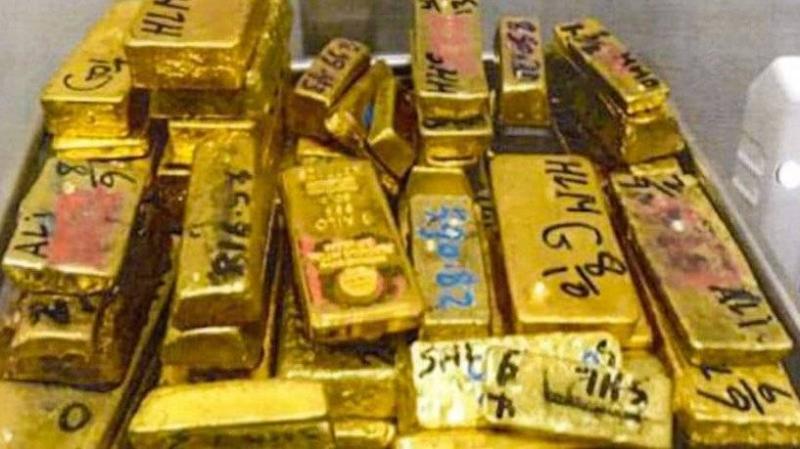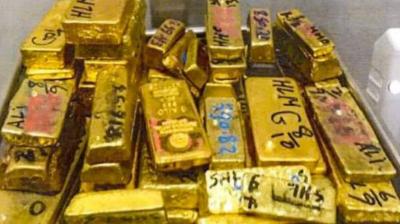The Libyan Public Prosecution has ordered the detention of officials involved in an attempt to smuggle approximately 26 tons of gold, marking the largest attempt to smuggle the precious metal out of the country in Libya's history. The attorney general's office stated in a press release that "the investigative authority has ordered the imprisonment of the General Director of the Customs Authority and other officials at the Customs Authority at Misrata International Airport," located 200 kilometers east of the capital, Tripoli.
The statement indicated the involvement of airport customs officials who conspired with others to illegally export 25,875,319 kilograms of gold bullion, in violation of regulatory legislation. The monetary value of the seized gold stands at $1.8 billion, based on current global prices. The detained individuals "deliberately contributed to committing acts that yield illegal financial benefits for others and caused harm to the national economy," according to the statement.
Earlier this year, the Public Prosecution announced it was investigating a gold smuggling case from Misrata International Airport. The trade and export of gold can only be conducted through the Central Bank of Libya via licensed companies and under specific conditions, as stated by the Public Prosecution. According to international reports, the black market in Libya represents an informal platform for gold trading. The American NGO "The Sentry," which monitors corruption, reported that since 2014, Libya has been used as a transit point for "illicit" gold to the UAE and Turkey.
Misrata is an important and influential coastal city that provided a significant number of fighters during the war against ISIS in Sirte (north-central) in 2016 and played a prominent role in repelling General Haftar’s assault on the capital, Tripoli, in 2019. Since the fall of Muammar Gaddafi's regime in 2011, Libya has experienced conflicts and divisions, with two rival governments managing affairs: one in Tripoli (west), led by Abdul Hamid Dbeibeh, recognized by the United Nations, and the other in the east, supported by Haftar.




